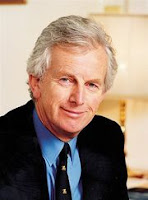Brown appoints regional ministers
- Minister for the North East of England: The Rt Hon Nick Brown MP
- Minister for the North West: The Rt Hon Beverley Hughes MP
- Minister for Yorkshire and the Humber: Caroline Flint MP
- Minister for the Olympics and for London: The Rt Hon Tessa Jowell MP
- Minister for the South West: Ben Bradshaw MP
- Minister for the East Midlands: Gillian Merron MP
- Minister for the West Midlands: Liam Byrne MP
- Minister for the East of England: Barbara Follett MP
This move is not as significant as many would have hoped, mainly because the above have bigger 'day' jobs, but it is a certainly a shift. However, some have met the news with considerably less enthusiasm than the NLGN, especially by those who remember what happened the last time government tried to inch towards regional government.
For example the Conservative MP for Shrewsbury & Atcham, Daniel Kawczynski, told the West Midlands NO! campaign: “The Conservative Party is continuing to fight this government’s move towards regionalisation and I am deeply concerned at the appointment of ministers for the regions.
"What is more, I note that Gordon Brown has appointed a Birmingham MP as Minister for the West Midlands – yet again ignoring how much of the West Midlands is a rural area, whose interests are unlikely to be effectively represented by an inner city MP. This in itself demonstrates the nonsense of a regional system of government that does not reflect the diversity of an area.”
Exactly what the regional ministers' roles and responsibilities will be are as yet unclear - we are in the process of finding out - but this is probably a prelude to proposed changes in Westminster that will see Commons question time sessions for each of the regions, along the lines of those already held for Scotland, Wales and Northern Ireland.
The other big news is that John Healey is now the new local government minister, taking over from Phil Woolas. This is more good news as Healey is considered a fan of devolution. For the moment however it's not apparent what fate has befallen Phil.



